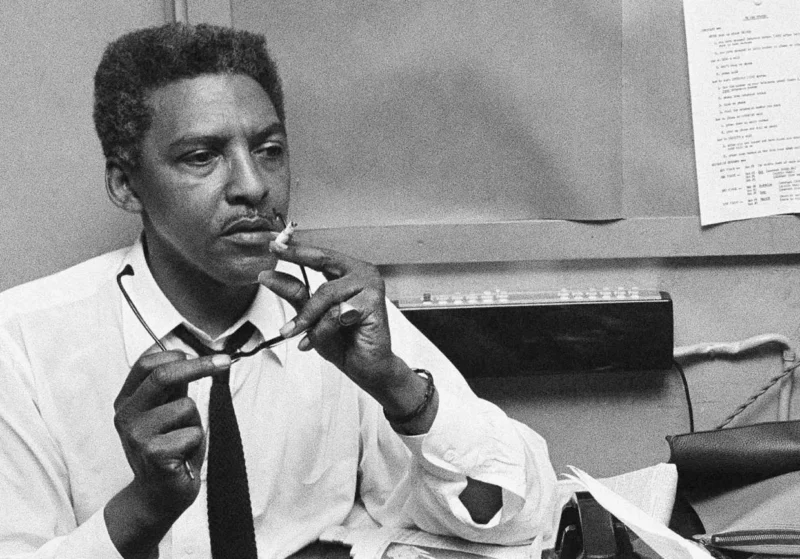New book looks beyond ‘Mr. March on Washington’ to the real Bayard Rustin
Share
Explore Our Galleries
Breaking News!
Today's news and culture by Black and other reporters in the Black and mainstream media.
Ways to Support ABHM?
By Elain Patton, NBC
“Bayard Rustin: A Legacy of Protest and Politics” honors the gay civil rights activist’s relentless pursuit of truth by casting a critical eye on his life and work.

While heroes fall out of the spotlight for a number of reasons, Bayard Rustin, the civil rights leader who organized the 1963 March on Washington for Jobs and Freedom, never fully emerged from the shadows. During his lifetime, “Mr. March on Washington,” as he was nicknamed by labor titan A. Philip Randolph, advised some of the country’s most influential thinkers on nonviolence and the power of mass protest. But this year, which marks the 60th anniversary of the march, is the first in recent memory that the work of the openly gay activist, who died in 1987, has captured the popular imagination of the American public.
“At the time that he died, he had sort of fallen out of the headlines. I wouldn’t say he was obscure; he was certainly known to the movements that he worked on, but not so much the general public. And then, suddenly, this kind of magical moment has appeared,” Walter Naegle, Rustin’s former partner and a contributor to a new essay collection on his legacy, said of the new book and a film debuting this year.
The collection, “Bayard Rustin: A Legacy of Protest and Politics,” features 19 essays that explore the highs and lows of the activist’s life and career and his impact on American society in the past century. Edited by Michael G. Long, the new book is part of a wave of analysis that’s emerged in anticipation of the march’s 60th anniversary and the release of “Rustin,” a buzzy Netflix biopic starring Coleman Domingo, releasing in November.
“Books can be released into a vacuum or they can be released into a perfect storm. It’s really a perfect storm for releasing this book,” Long said, referring to the year’s notable Rustin-related events, as well as decades of scholarship that form the “building blocks” for the collection.
Learn more about Rustin and this new book.
You can also check out these articles about Rustin.
More breaking news here.









Comments Are Welcome
Note: We moderate submissions in order to create a space for meaningful dialogue, a space where museum visitors – adults and youth –– can exchange informed, thoughtful, and relevant comments that add value to our exhibits.
Racial slurs, personal attacks, obscenity, profanity, and SHOUTING do not meet the above standard. Such comments are posted in the exhibit Hateful Speech. Commercial promotions, impersonations, and incoherent comments likewise fail to meet our goals, so will not be posted. Submissions longer than 120 words will be shortened.
See our full Comments Policy here.